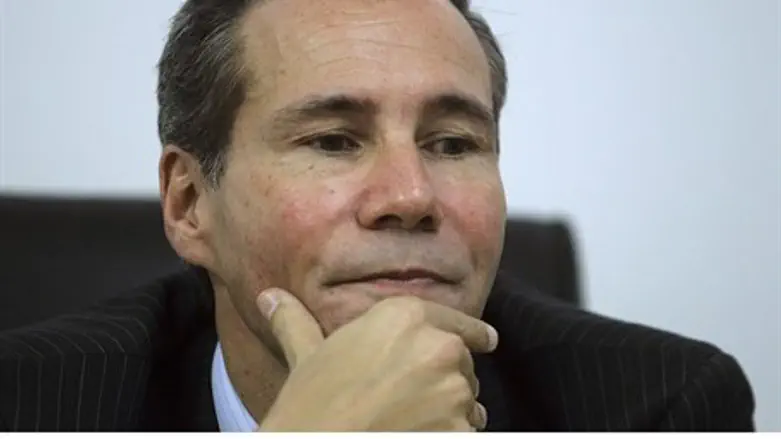
More than 400,000 people on Wednesday marched in symbolic silence in Buenos Aires, to mark a month since the suspicious death of a prosecutor who was ready to accuse the Argentine president of a massive cover-up.
"I am here because I want to see justice done for someone who gave his life for the truth," said teacher Marta Canepa, 65, among those walking the 1.7 kilometers (just over a mile) under the banner "Homage for Prosecutor Alberto Nisman", reported AFP.
The rally is the first major public show of defiance in a murky case that has ignited a political firestorm in Argentina and piled the pressure on President Cristina Kirchner, 61, in her last year in office.
Among those who braved the deluge were Nisman's two young daughters and his ex-wife, Judge Sandra Arroyo Delgado.
"The march itself is a reflection of society's underlying demand for an end to impunity. Tension between the justice system and executive were there before, but the Nisman case has exacerbated them," said sociologist Rosendo Fraga with pollsters Nueva Mayoria, according to AFP.
Nisman was found in his Buenos Aires apartment with a bullet through his head on January 18, the day before he was to go before a congressional hearing to air his finding that Kirchner and her foreign minister plotted to shield Iranian officials implicated in the bombing of the AMIA Jewish-Argentine charity federation.
85 people were killed and more than 300 injured in the attack, the deadliest in Argentina's history -- and one that has yet to be solved 21 years later.
It has since been revealed that he had drafted arrest warrants for Kirchner and for Foreign Minister Hector Timerman before he was found dead.
The death was initially labeled a suicide, but suspicion has fallen on Kirchner's government over orchestrating Nisman's murder.
The president herself has suggested Nisman was manipulated by disgruntled former intelligence agents who then killed him to smear her.
Kirchner said she would dissolve the nation's intelligence body after she blamed rogue agents for Nisman's death.
Kirchner, Argentina's first democratically elected woman president who is not seeking reelection, left the city with her cabinet ahead of the march, delivering a speech from the city of Zarate after inaugurating a nuclear power plant.
Her government slammed the rally as "golpista" -- seeking to destabilize the government.
In a televised speech just hours before the march began, Kirchner also suggested that unnamed outside interests were somehow behind the scandal.
Her top aides suggested that the United States and Israel were trying to drag Argentina into the Middle East conflict.
In 2013, Kirchner reached a deal with Iran that would have allowed Iranian suspects to be questioned at home, but that agreement never materialized.
Nisman and Argentina's large Jewish community were vehemently opposed, arguing that Tehran could not be trusted.
In his accusation against Kirchner, which was reaffirmed on Friday by his replacement, Gerardo Pollicita, Nisman said the Argentine leader was working behind the scenes to protect the Iranians in return for oil, at a time when the South American country was in the midst of an energy crisis.
He also alleged that Kirchner asked Interpol to lift outstanding "red notices" against the Iranians -- a request that Interpol's former director denied had been made.